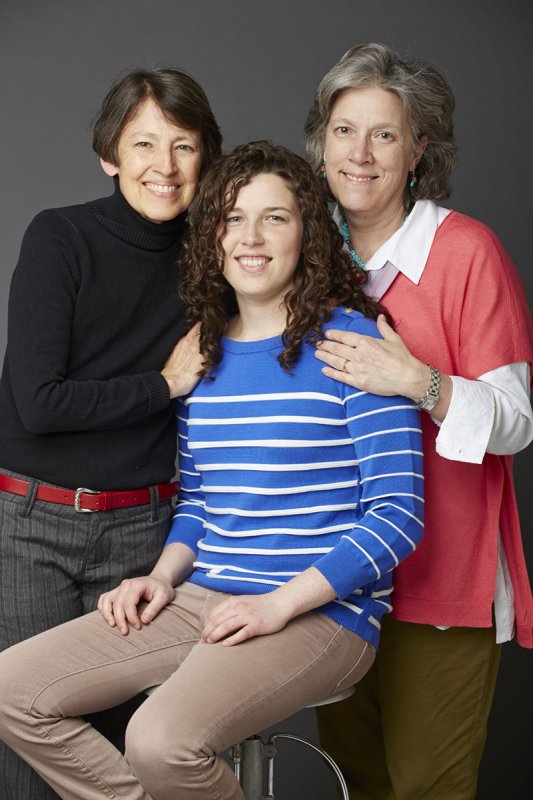
Maureen Brodoff and Ellen Wade
Few people can say they truly made history. Maureen Brodoff and Ellen Wade can say they did it twice.
Before becoming plaintiffs in the Goodridge case, Maureen and Ellen were at the center of another landmark legal ruling: this one about gay adoption rights. In GLAD’s 1993 case Adoption of Susan, the Massachusetts Supreme Judicial Court ruled that the unmarried partner (Ellen) of a child’s biological parent (Maureen) could adopt the child and become a second legal parent without the biological partner giving up any rights. Together with a companion case, Adoption of Tammy, it became a milestone in adoption law for protecting the rights of gay parents and their families.
Fast-forward a decade to Goodridge, and the couple was at the center of another political maelstrom. This time their daughter Kate, no longer hidden behind the court-assigned name of “Susan” that was designed to protect her privacy, was right there, speaking publicly on behalf of her moms at State House rallies. And it was clear to the couple that as their daughter had grown, so had an entire sea change of attitudes. “There’s a completely different generation that sees being gay as a non-issue,” says Ellen. “During the case we spoke to high school classes, including some at Kate’s school. These were teenagers two or three years away from voting, and when you’d ask them about their attitudes toward gay people, they’d say ‘Of course they should be able to get married!’”
Today those teenagers can vote—which explains why, according to one Washington Post/ABC News poll released in March, about 75 percent of Americans under age 30 support same-sex marriage. And as they reflect back on their experiences during the Goodridge case, Maureen and Ellen say it’s not the anti-gay venom they remember most, but the overwhelming support they received.
“We could never have predicted how it would go. We knew it might be hard and stressful, but mostly it was an exciting privilege,” says Maureen, She adds that Goodridge also helped an important group of people to have their own coming-out: allies. “There were people who knew I was a lesbian but were never sure if they should acknowledge it. Suddenly, because of the case, they had the ability to come out and say in their own words: ‘I heard what you’re doing, it’s wonderful and I’m rooting for you.’ Those were the most amazing moments.”
Ten years later, some things haven’t changed: Ellen still has her own Brookline law firm, Wade Horowitz LaPointe, which offers especial expertise in GLBT estate planning. Maureen still works with the National Fire Protection Association, as vice president and general counsel. Kate, now 25, still supports the community; she works in development at Fenway Health.
And two landmark legal cases later, they realize, even once-dramatic changes are now simply the status quo. “It’s amazing how things have changed so much, so fast,” says Ellen. “As each additional state recognizes same-sex marriage, it’s almost become ho-hum!” And what could be more exciting than that?








